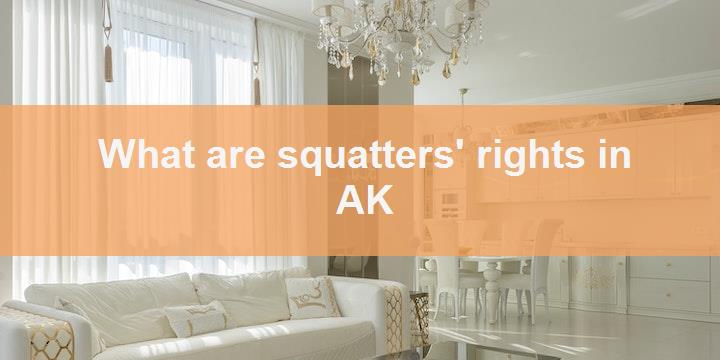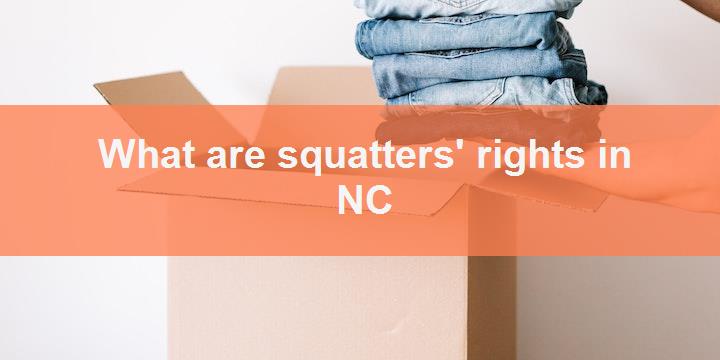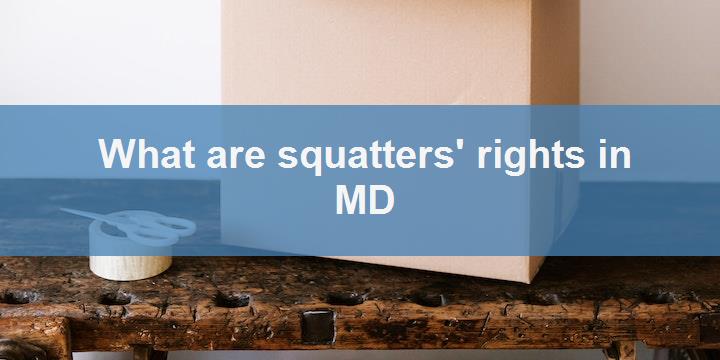When it comes to understanding squatters’ rights in Alaska, there are some crucial things to keep in mind. Firstly, it’s essential to know that squatters’ rights are not officially recognized in Alaskan law.
However, there are a few legal mechanisms that tenants can use to protect themselves, such as adverse possession and quiet title. Additionally, it’s important to understand that squatters’ rights in Alaska can vary depending on the specific circumstances involved. For example, the rules for squatting on public lands may be different than for squatting on private property.
Finally, it’s crucial to remember that squatting is generally considered illegal and can result in legal consequences if proper procedures are not followed. Understanding these important points is crucial for those interested in exploring the topic of squatters’ rights in Alaska.
What is the squatting/squatter?
Squatting, also known as occupying, refers to the act of living in a property or land without the legal owner’s permission. Squatters may occupy a range of properties, including abandoned homes or buildings, public spaces, or vacant lots. Often, squatters gravitate towards spaces that are underutilized or left abandoned. The squatter may believe they have a right to the property, either because they have been there for a long time, or because they believe it is a basic human right to have a safe and secure place to live. For example, a squatter may set up camp in a vacant lot in a city with the intention of establishing a self-sustaining community garden.
What is Adverse posession in Alaska?
Adverse possession is a legal concept that allows someone who possesses and uses someone else’s property to gain ownership of it. This concept is recognized in Alaska, and there are specific requirements that must be met for adverse possession claims to be successful.
Firstly, the possession must be open, notorious, and continuous for 10 years.
Secondly, the possessor must not obtain possession through force, fraud, or deceit.
Lastly, the possessor must pay property taxes on the land during the 10-year possession period.
In Alaska, adverse possession can be a complex legal issue, but understanding the requirements and working with an experienced legal professional can help you navigate the process successfully.
Is it legalto squat in Alaska?
First and foremost, it’s important to understand the laws and regulations surrounding squatting in Alaska. According to state law, squatting on private property without permission is considered unlawful trespassing. However, there are certain circumstances in which squatting may be allowed, such as in abandoned or unoccupied buildings or on public lands. It’s crucial to do your research and understand the specific laws in your area before considering squatting. Additionally, it’s important to remember that squatting can come with serious consequences, including fines, jail time, and legal fees. Ultimately, it’s best to explore alternative housing options rather than risking legal trouble by squatting.
Can police remove squatters in Alaska?
Firstly, it is important to understand that squatters are individuals who occupy property without the owner’s permission. While every state has its own unique set of rules and regulations concerning squatters, Alaska has specific laws governing the eviction of such individuals. In most cases, the police are legally allowed to remove squatters from the property, but the process involves a series of legal procedures that must be followed before any eviction can take place. So, before taking any legal action against squatters, it is essential to consult with an attorney who can guide you through the legal process and ensure that your rights as a property owner are protected.
How to evict squatter in Alaska?
First and foremost, before attempting to evict a squatter in Alaska, it’s essential to understand your state’s laws and regulations. Then, you should gather evidence of the squatter’s occupancy of your property, such as photographs or witness statements. After that, you should send a written notice to the squatter requesting that they vacate your property within a certain timeframe. If the squatter does not comply, you may need to file a lawsuit to acquire an eviction order. In this case, it’s crucial to hire an experienced attorney to guide you through the legal process. Ultimately, patience and perseverance are key in evicting a squatter in Alaska, and following these steps can ensure a successful outcome.
FAQ
Q: What are squatters’ rights in Alaska?
A: Squatters’ rights in Alaska refer to the legal doctrine of adverse possession. This allows a person who has occupied someone else’s property without permission to claim legal ownership of the property after a certain period of time.
Q: How long do squatters have to occupy a property before they can claim ownership?
A: In Alaska, squatters must occupy a property continuously for a minimum of 10 years before they can claim ownership through adverse possession.
Q: What factors determine whether a squatter can successfully claim ownership of a property through adverse possession?
A: There are several factors that can impact a squatter’s ability to claim ownership through adverse possession, including the length and continuity of occupation, whether the occupation was hostile and without permission, whether the squatter paid property taxes, and whether the true owner knew about the occupation.
Q: Are there any exceptions to squatters’ rights in Alaska?
A: Yes, there are some exceptions to squatters’ rights in Alaska. For example, if the property is owned by the state or federal government, adverse possession is not allowed. Additionally, if the true owner takes legal action before the 10-year occupation period is up, the squatter will not be able to claim ownership.
Q: Can squatters be evicted from a property in Alaska?
A: Yes, even if a squatter has occupied a property for the required 10 years, they can still be evicted if the true owner takes legal action to remove them.
Q: Is it legal to intentionally squat on someone else’s property in Alaska?
A: No, intentionally squatting on someone else’s property without permission is illegal in Alaska and can result in criminal charges. Adverse possession only applies to cases where the squatter occupied the property without knowledge or permission from the true owner.
Also Reading
Better know before moving to South Carolina
What is the eviction process in Maine?
What is the average rent in Coeur d’Alene?




